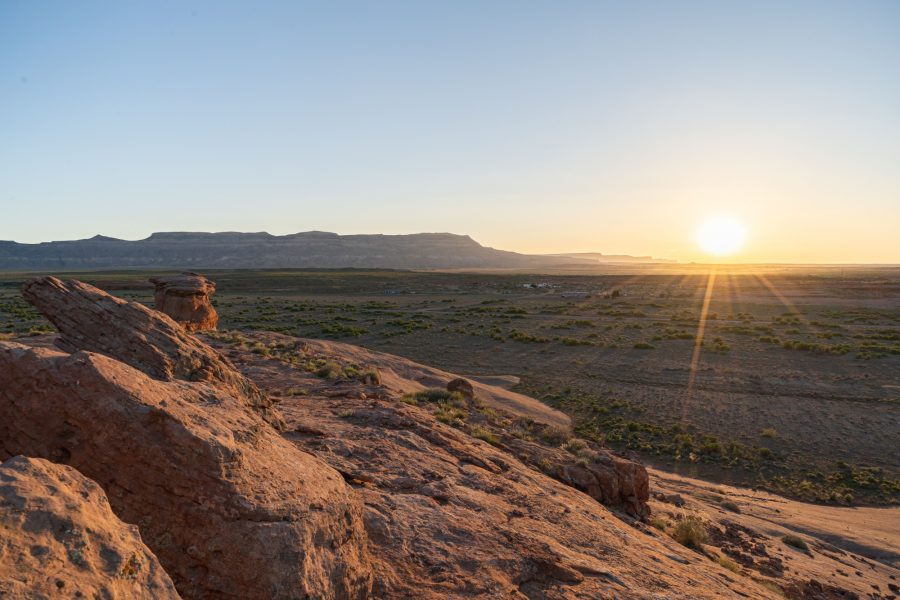The University of Arizona, in partnership with Arizona State University, Northern Arizona University and the Mayo Clinic in Scottsdale, made Arizona one of the 11 states that are participating in the National Institute of Health’s Community Engagement Alliance Against COVID-19 Disparities. With a $1 million-a-year grant, the Arizona CEAL COVID Consortium is working with over 30 community leaders and organizations to identify and combat COVID-19-related health disparities.
As the pandemic rages on, it continues to reveal the ugly prevalence of significant health disparities in our country. Being all too familiar with this reality, Dr. Sairam Parthasarathy, chief of the Division of Pulmonary, Allergy, Critical Care and Sleep Medicine at the University of Arizona College of Medicine — Tucson, and his colleagues reached out to other colleagues doing similar work at ASU, NAU and the Mayo Clinic and created the Arizona CEAL COVID Consortium, which is being referred to as the AC3. The study has two major goals:
1. To conduct urgent community-engaged research and outreach focused on COVID-19 awareness and education, address widespread misinformation about COVID-19 and provide an evidence-based response to the disease.
2. To help educate and facilitate the inclusion of people of diverse backgrounds, especially African Americans, Hispanics/Latinos and American Indians/Alaska Natives, to participate in clinical research for COVID-19.
Parthasarathy spoke about how some communities still do not fully understand the ways and the importance of various protective measures to prevent the spread of COVID-19. These communities are often the same communities that face social determinants of health that put them at higher risk of getting COVID-19.
“They may not have a car so they have to travel on a bus — there are 10 other people on the bus breathing the same air. They may have smaller households, breathing the same air as other people,” Parthasarathy said. “They can’t work over Zoom, they have to go in person. Right by virtue of that social determinant, they are more likely to contract the disease and end up in the hospital.”
They may also be more impacted by COVID-19 because of the other health conditions like diabetes, which are more prevalent for poorer communities. Having another health condition like diabetes with a COVID-19 infection can lead to a higher risk of complications.
RELATED: Contact tracing proves indispensable for Native American communities battling coronavirus
Given these social determinants of health putting certain communities at a higher risk of contracting and being hospitalized by COVID-19, it is of hyper importance that these communities to implement the basic but important safety precautions like hand washing, social distancing, wearing masks and routine disinfection.
The AC3 team is working with community leaders to provide trustworthy information in a culturally competent manner. Their mission is to educate and provide resources to communities that need them.
“These communities and community leaders are the boss. Each of these community leaders, organizations and members have the right to take this information or say ‘I don’t want to do this.’ We are not giving the medications or vaccines,” Parthasarathy said.
By engaging with members of the community, they can help identify barriers and provide accurate information and resources to help address those barriers. For example, if a community member needed to know where they could find COVID-19 tests, the team could help find sites administering those tests, as well as potential rides to get to those sites.
The second goal of the study is extremely important for the development of safe treatments. This is because the African American, Latinx and Native American communities have been significantly impacted by the pandemic. The U.S. Food and Drug Administration cannot come to conclusions about the effectiveness and safety of these clinical trials if they do not include participants from these backgrounds.
The team, however, understands that many minority groups may have a mistrust of these studies especially given the historical context where scientists have taken advantage of these groups in the past and actively harmed them.
“We want the approval and blessing of various community leaders in order for us to do something that helps their community that they are in agreement,” Parthasarathy said. “We will engage them about what they trust and mistrust, and how they can help participate. This is all voluntary.”
With the partnership between these universities and communities, the AC3 hopes to help engage underserved communities and combat some of the health disparities that plague this country.
Follow Udbhav Venkataraman on Twitter









